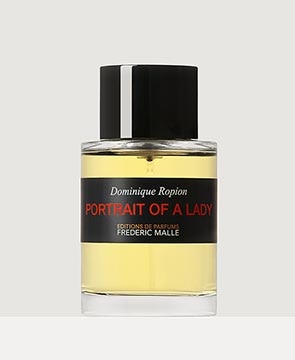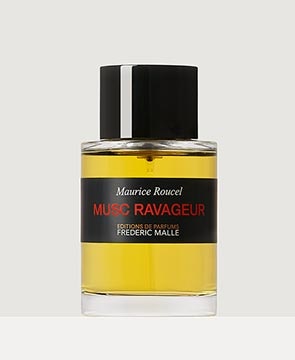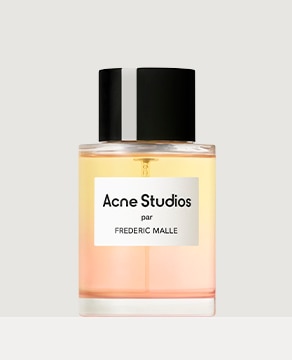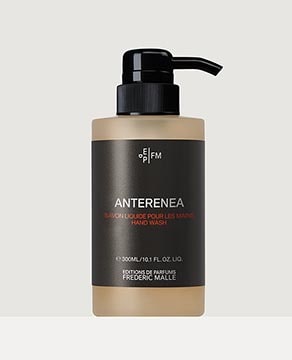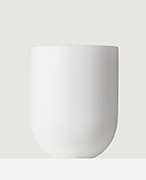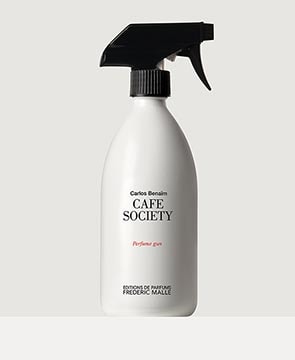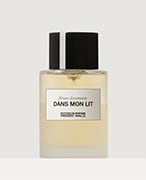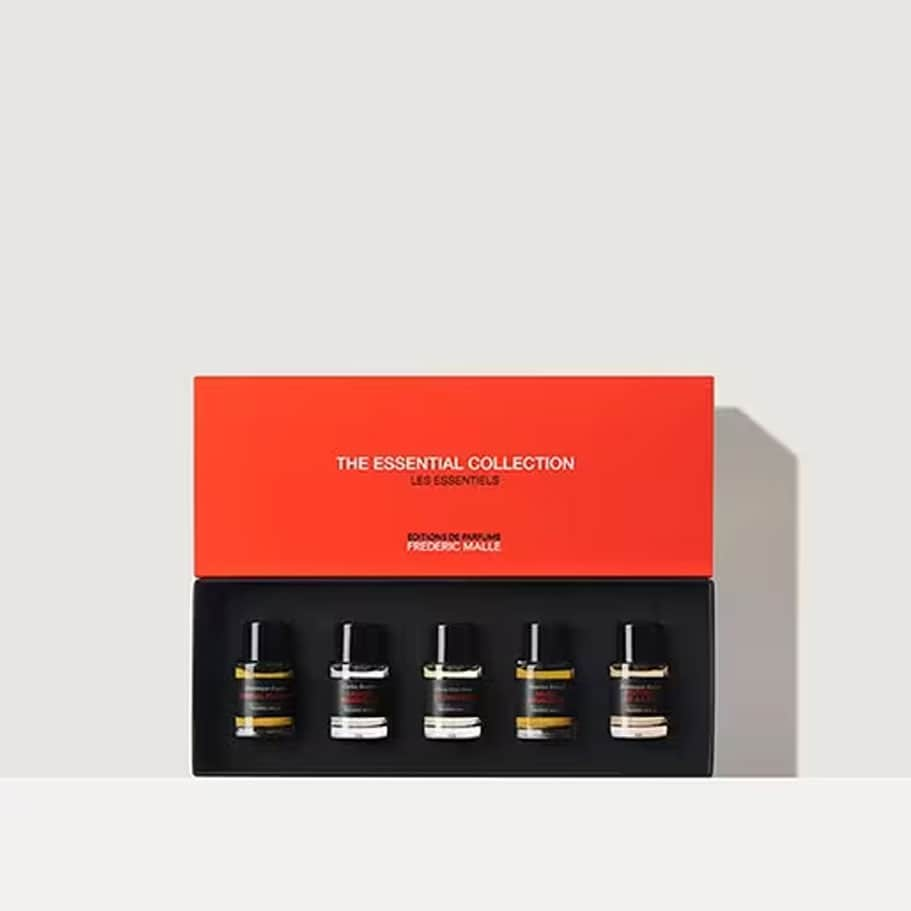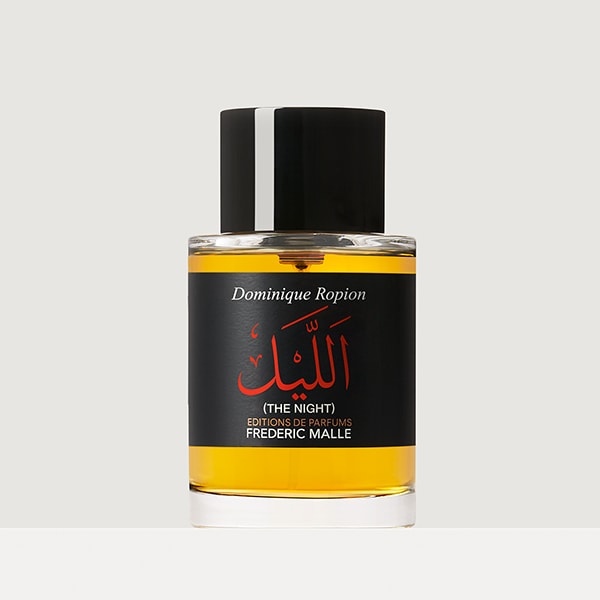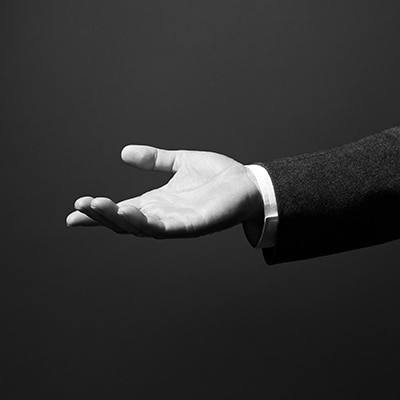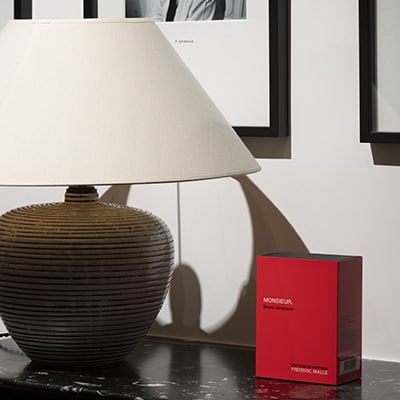About Our Products
WHAT HAPPENS IF A PRODUCT IS OUT OF STOCK?
If an item is unavailable at the time of purchase, you will be notified and will not be able to add it to your cart. If an item becomes unavailable while it is in your cart, you will be notified at checkout and will not be charged for it.
WHAT IS A WAITLISTED ITEM?
Occasionally for new launches we offer the opportunity for advance reservation online. We will notify you via email when the item becomes available on our webstore for purchase.
A PRODUCT I WANTED TO ORDER HAS BEEN DISCONTINUED. WHAT CAN I DO?
Please contact our Customer Service Desk at 0808 1645 862.
IS THERE A TRICK FOR INCREASING FRAGRANCE DIFFUSION?
If you want to make an impression, the hair is the best place to spray a perfume. Given that it is slightly oily, it has the ability to hold a perfume over a long period of time. The head is also a natural fragrance diffuser. It’s warm and always in motion, both of which increase diffusion.
Having said that, be careful not to spray your hair too often, as the alcohol in the perfume might dry it out.
IS IT TRUE THAT PERFUMES CHANGE WITH DIFFERENT TYPES OF SKIN?
The answer is yes, but not as much as people think. The people on whom perfumes change drastically are extremely rare.
People often spray a perfume on themselves in a store and think it smells differently on them to when they smelled it on a friend. The fact is that it cannot possibly smell the same, because one was sprayed several hours ago (meaning that one is smelling the heart and base notes of the perfume) and the other has just been sprayed moments ago, showcasing, for the time being, only its top notes.
Another thing to keep in mind is that one does not experience a perfume up close in the same way as one does from a distance.
Finally, perfumes were not born equal! Older perfumes that are the result of long and complicated formulas involving many natural ingredients, tend to be more fragile, especially if they contain many carnal notes. More modern perfumes, especially those with a strong base (with lots of wood or musk, for instance), tend to be more stable.
DO YOU MACERATE YOUR PERFUMES BEFORE BOTTLING THEM?
Of course we do, as one should! Like wines, perfumes have to age in large containers to come into their own. This is even truer if one uses lots of natural ingredients or lots of rich base notes. (An Eau de Cologne requires less maceration than heavy Chypres, for instance).
Every classic used to be macerated for a period between 4 and 8 weeks. Some mass-market companies eliminated this practice in the 80’s, to increase money flow. Once we are done developing a perfume, we always decide on an aging protocol for it with its author. Some perfumers favor long maturation (aging the perfume concentrate before mixing it with alcohol), others prefer long maceration (aging the finished solution).
Portrait of a Lady, for instance, matured for 2 weeks and macerated for 4- a 6-week aging process in total. When working with fresh lab samples, one notices that they are much less powerful, less beautiful, and often less stable, than properly aged products. Time and mass are critical. As a rule of thumb, we find that one must manufacture a minimum of 5 Kg of concentrate at a time to get the extra body needed in a perfume.
HOW DO YOU EXPLAIN THE FACT THAT SOME EAUX DE PARFUM ARE NOT LONG-LASTING?
First, one must understand that the classification Eau de Parfum, Eau de Toilette, etc… is not regulated. An Eau de Parfum is somewhere between an Eau de Toilette and an extract. Having said that, some marketing people profit from the vagueness of that category, calling some perfumes Eaux de Parfum that do not deserve the name. Concentration is crucial to duration, but even the most concentrated perfumes don’t last if they are composed with highly volatile raw materials. The duration of each raw material included in the composition, and the proportions in which they are used, are just as important. In other words, a perfume composed with few but powerful raw materials, and that has a low concentration, might last longer than a more concentrated perfume composed with weak raw materials.
HOW CAN I FIND THE INGREDIENTS OF A PRODUCT?
A complete list ingredients for every product is listed on the outer packaging. To request an ingredient list for a specific product, please CONTACT US.
HOW LONG HAS FRÉDÉRIC MALLE BEEN PUBLISHING PERFUMES?
After growing up in a family with deep ties to the fragrance industry, Frédéric began his own career in the perfume business in 1988. Having worked closely with perfumers for many years, he founded Editions de Parfums in 2000. For a more detailed history on Frédéric Malle and his background in the fragrance industry, please visit the About page.
WHY DOES FRENCH LOVER / BOIS D’ORAGE HAVE TWO DIFFERENT NAMES?
The original name is French Lover. It shocked many people in the US, so we call it Bois d’Orage for the US market only. I like both names, but it is likely that we'll only keep one name in the future.
WHICH KIND OF WAX DO YOU USE FOR YOUR CANDLES?
Wax is a more complicated issue than it seems! The wax cocktails we use vary according to each fragrance and according to the type of wick that we have chosen. They are mix of vegetal and mineral waxes (as 100% vegetal wax tends to smell stale after a few days). 100% vegetal wax also tends to have burning issues when ambient temperature is too low or too high.
DO YOU CREATE ANY PERFUMES MADE TO MEASURE?
I don’t believe that this idea of made to measure applies to our business. What I find more interesting is giving total freedom to the greatest perfumers in the industry, and allowing them to create their dream fragrances. That way, when people come to us to choose their signature scent, they are choosing from genuine masterpieces.
This concept of bespoke perfumes is quite recent. It was generated by people that do not possess a real culture of luxury. It is interesting to note that the most stylish people of the 20’s and 30’s had their own chefs, their own decorators, only wore couture, had cars made to measure by people like Etore Bugatti, had jewels made by René Boivin, yet bought ready made perfumes from designers like Guerlain.
HOW SHOULD I PROPERLY STORE A FRÉDÉRIC MALLE FRAGRANCE?
As natural daylight, heat and extreme changes in temperature can be damaging to perfume, we recommend storing our fragrances in a temperature-controlled environment, away from windows and hot lighting fixtures.
I HAVE JUST PURCHASED A PERFUME. SHOULD I STORE IT IN A REFRIGERATOR, LIKE AT YOUR BOUTIQUE?
At Editions de Parfums we keep our perfumes in a pristine state, so that they smell as they would in a perfume lab, exactly as they are meant to. That being said, our perfumes are very stable and are designed to be used and stored in a normal way. If you are intending to use your perfume normally, I do not recommend storing it in a fridge, unless you are planning on not using it for a very long period of time.
DO YOU RECOMMEND CHANGING PERFUME ACCORDING TO THE SEASONS?
I believe that perfumes are like clothes: some are warmer than others. It then becomes a matter of comfort, and common sense. You should follow your instinct. The amount of perfume one applies is also critical. It is uncomfortable to wear a heavy dose of a warm amber (like Musc Ravageur) on a hot summer day. But a hint of it might work. It might also work when the sun is down. Some fragrances like Carnal Flower, for instance, work in most climates. I don’t think that it is necessary to change fragrance if wearing such a perfume, providing that it does not feel uncomfortable. One might consider changing perfume every season if one is wearing a very fresh fragrance, a heavy Chypre, or a heavy Amber. Changing the amount that one is wearing might be the solution, should you want to stick to your signature fragrance.
MY NEW PARTNER DOESN’T LIKE THE PERFUME I HAVE BEEN WEARING FOR YEARS… SHOULD I OPT FOR A NEW SCENT?
There is no easy answer to this. It is very difficult to make a radical change to something that is so deeply reflective of someone’s personality. One should hope that your new partner is not opposed to your type of smell, but that he is just uncomfortable with a detail in your signature perfume. My advice is to take your time. Try to find something that pleases both of you; but you should not, under any circumstances, agree to wear something that you are not comfortable with.
WHY DO YOU OFFER ONLY ONE CONCENTRATION PER PERFUME, UNLIKE MANY OTHER BRANDS? ARE YOUR PERFUMES EAUX DE TOILETTE OR EAUX DE PARFUM?
In the old days brands used to make several versions of the same perfume, using different concentrates. In the 80s, many brands started offering the same formulae in several concentrations. It was then obvious that there is an ideal concentration for each perfume. For this reason, we sell each perfume in the collection in its optimum concentration. The classifications (EDT, EDP, Extract, etc…) are not official, but they are supposed to indicate the concentration level of each fragrance and to the quality of the ingredients that are in their formulae. Lately, these classifications have often been used as a way of positioning fragrances, rather than as a way of describing their true nature, which can be confusing. Should I want to classify the perfumes of our collection, I would say that the quality of the raw materials that we use is always of the high quality often associated with perfume extracts. As far as concentration is concerned, I would say that: Cologne Bigarade, Angéliques sous la pluie and l’Eau d’Hiver are lighter than Eaux de Toilettes. Vétiver Extraordinaire, En Passant, Bigarade Concentrée and French Lover/Bois d’Orage are halfway between Eaux de Toilette and Eaux de Parfums. Musc Ravageur, Iris poudre, Noir Epices, Le Parfum de Thérèse, Lipstick Rose, Lys Méditerranée, Une Fleur de Cassie should be considered Eaux de Parfums. Une Rose and Carnal Flower, and Portrait of a Lady should be considered perfume extracts.
DO YOU DIFFERENTIATE BETWEEN FEMININE AND MASCULINE SCENTS?
I believe that the lighter, more transparent fragrances, like Cologne Bigarade, or Angéliques sous la Pluie, are unisex. They are almost asexual, because their main purpose is to make one feel clean. In that sense, they are very much part of one’s grooming routine. The opposite type of perfume, such as warm Ambers, or Chypres - both very sensual - can be seen as a beautified rendition of the scent of warm skin. To me, this also makes them unisex. Figurative or floral fragrances (especially those containing white flowers) are considered feminine in the Western world. Finally, even though Fougère (another type of perfume) was created specifically for men, some women wear it, like they would wear a man’s watch or a man’s shirt.
WHAT IS HEADSPACE?
Headspace (also called living flowers by IFF), is a technique that allows us to analyze the evaporation from all things, and therefore to understand what the smell of the object in question is made of. The headspace technique provides us with data that tells us precisely how a scent is made. It lists the ingredients that evaporate from an object and their proportion. It was used for the first time in the 80s with breakthrough scents like Antonia’s flowers (which is based on a headspace analysis of freesia). We then used it in perfumes like Carnal Flower (which is partly based on a headspace analysis of tuberose). The most literal use of headspace in the industry is probably our collection of flower-scented candles, most of which are based on headspace analysis by IFF’s Dr. Braja Mookherjee.
WHAT IS A « CHYPRE »?
In 1917, Coty invented a new abstract accord called Le Chypre. The accord was based mostly on Oak moss, Patchouli, Vetiver, Labdanum, a few floral notes and Bergamot. This new accord inspired numerous new perfumes like Mitsouko, Femme, Bandit, Miss Dior, Eau Fraîche (Dior), Y etc… becoming a perfume category of its own.
HOW MANY PEOPLE INFLUENCE THE FINAL DRAFT OF A PERFUME?
Two: the perfumer and me.
WHERE SHOULD I SPRAY MY PERFUME?
People should spray perfume in whichever ways they choose. I’m not crazy about those affected gestures that some specialists are trying to impose.
I grew up wearing Eau de Colognes so I spray perfumes on my chest. I also like the idea of applying perfumes behind the neck. Aside from the intensely attractive nature of the gesture, the neck has the advantage of being near one’s hair, which is a fabulous natural diffuser.Most people, however, especially those who use very concentrated perfumes (like Extracts) wear them on their neck or under their wrist, which is also effective.
Finally, I don’t not recommend spraying perfumes on the back of one’s hands. Perfumes rarely smell their best there.
PERFUMES DON'T LAST ON ME. WHAT SHOULD I DO?
It is very common for people who have been wearing the same perfume for a long time to become desensitized to its smell. This might be your case.
Another reason why perfumes do not last on you could be that your skin is too dry. If that is the case, apply either a (truly) unscented body lotion, or one that matches your perfume. The latter is the most effective.
I would also suggest spraying your clothes, given that perfumes last longer on textiles than on skin. The only disadvantage of doing this is that it is difficult to switch from one perfume to another after the clothes have been permeated.
Finally, one must be careful not to apply generous amounts of very dark scents on white or pale colors. They might leave a light stain.
ARE FRAGRANCES CONTAINING 100% NATURAL INGREDIENTS THE BEST ONES?
Absolutely not!
Why should we only work with naturals when synthetics often allow us to be much more precise, or even give us access to smells that cannot be found in nature?
I give total freedom to the best perfumers in the industry, including the freedom to use extravagant quantities of the most precious naturals. But all of our perfumes contain synthetic raw materials. Without them, perfumers wouldn’t have been able to accomplish the level of artistry that they seek.
This question stems from a huge misunderstanding. Many people associate the word synthetic with the word cheap, and natural with the word quality. This is reinforced by people’s love of classics, which they believe to be made of natural scents, because they are old. These ideas, especially the latter, are false. No perfume is 100% natural.
All the best perfumers use synthetics and naturals regardless of their origins because naturals (absolutes, essences, CO2 extractions….), never smell exactly like nature. They are to flowers what strawberry jam is to strawberries: Delicious, but different. A lot is missing in them. One needs nature identicals (synthetic ingredients that imitate nature) to complete the picture.
This is why a perfume composed exclusively of natural products doesn’t smell like nature but rather like an old perfume, or at best like a simplistic perfume, and why, conversely, a very figurative perfume is full of synthetic raw materials.
I HEARD THAT IT IS NOT RECOMMENDED TO RUB A PERFUME ON ONE’S SKIN AFTER HAVING SPRAYED IT. IS THIS TRUE?
I don’t recommend doing so for two reasons: First, rubbing does not make the alcohol evaporate faster. All it does is mix the stuff that your skin has collected during the day with the perfume; second, the gesture spreads the perfume across both arms, preventing you from trying on another, should you wish to do so.
DO YOU MAKE PERSONAL APPEARANCES AT ANY OF THE STORES?
To find out about upcoming personal appearances, please subscribe to our newsletter or follow us on Instagram and Facebook.
WHY ARE YOUR HOME FRAGRANCES DIFFERENT FROM YOUR PERFUMES?
Perfumes merge with the skin and generate a sense of sex appeal. Neither of these characteristics apply to the sort of scent that you want in a house, which should be beautiful, chic and comfortable. One does not feel the same attraction to a home as one does to a man or a woman.
I HAVE A QUESTION THAT WAS NOT ANSWERED HERE. HOW CAN I WRITE TO YOU?
We appreciate all feedback and enquiries. Please send us a message via the Contact Us page
